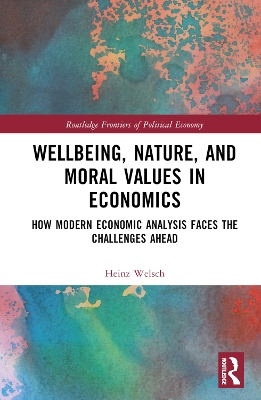Routledge Frontiers of Political Economy
1 total work
Drawing on more modern expressions of economic analysis, this book explores the interplay between wellbeing, nature and moral values in economics.
In standard accounts of economics, these three themes are typically treated in isolation from each other, or else overlooked entirely. This book argues that due to this blinkered approach, standard economic analysis is poorly equipped to deal with global contemporary challenges including climate change, biodiversity loss, sustainability, and the risk of pandemic diseases. The book reviews the economic literature to show that the last few decades has seen the re-insertion into economic analysis of human wellbeing, natural resources and moral values: three themes present in early economic thought that are highly relevant to the challenges ahead. The book argues for the greater integration of these three themes as the natural environment is crucial to human wellbeing, and moral values are essential for environmentally benign behaviors. The book also focuses on how specific moral values, identified by contemporary moral psychology, actually shape economic behavior rather than how abstract ethical principles they should shape economic behavior.
The book will be of significant interest to readers in the economics and social sciences, particularly behavioral economics and social psychology.
